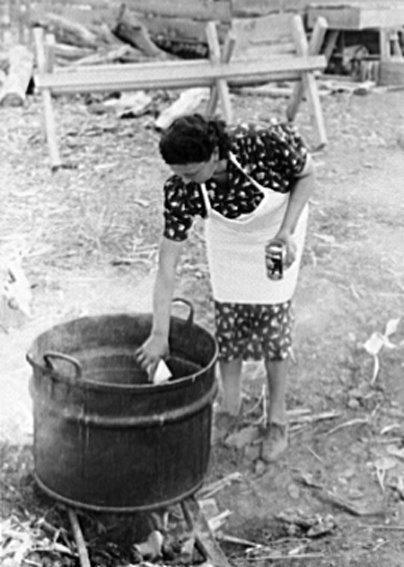Rajendra Pachauri is the chairman of the Intergovernmental Panel on Climate Change. We’re told this United Nations body is a scientific organization that writes scientific reports. Pachauri is also a grownup. He’s in his seventies, for heaven’s sake, and holds a PhD in economics.
So why is his analysis always so shallow, so two-dimensional? Here’s another zinger of a Pachauri quote I’ve stumbled across:
For generations, urbanites have distanced themselves from the realities of nature. In the name of urban growth, cowboy economies have glorified the reckless exploitation of anything in one’s path. The result has been 150 years of greenhouse gas emissions, despite the many warnings that this path is not sustainable. (see page 7 of this pdf)
The document containing this quote resides on the Rockefeller Foundation website. Untitled and undated, it is a portion of a larger publication I’ve so far been unable to identify. However, it appears to be connected to the Rockefeller Foundation’s Global Urban Summit held in Italy in July 2007.
Two pages of this document are devoted to the thoughts of Pachauri, described as a plenary speaker and “Chairman, Nobel Prize-winning International Panel on Climate Change.”
By now, I suppose I shouldn’t be surprised by anything this man says. And yet I find the above quote distressing.
Cities grew because millions of ordinary people chose to move to them. These people voted with their feet. Cities offered jobs that were better paid and far safer than those available on the farm. Urban centers provided educational and cultural opportunities rather than intellectual stagnation. They represented companionship as opposed to isolation.
150 years ago there were no telephones, never mind televisions, the Internet, or e-mail. Those who lived rurally could go for months without communicating with anyone outside a small circle of family and neighbours. Indeed, those who installed the first phones in rural America felt they were helping to alleviate acute loneliness on the part of farm women in particular – loneliness that sometimes led to mental illness and suicide (see Chapter 4 of this history of the telephone).
People who lived on farms were frequently under the thumb of the patriarchs/matriarchs of their families, or of their church minister. They had little privacy, scant personal freedom, almost no access to medical care, and few prospects.
Pachauri, though, would have us believe that cowboy economies ran roughshod over the natural world as a result of some big, bad, deliberate goal (on the part of whom, precisely?) to promote urban growth. He tosses this off as though it’s a well-established, commonly accepted idea – rather than an utterly absurd one.
Pachauri would also have us believe that, over the past 150 years, people didn’t work hard to make their communities safer, to improve their living conditions, to find cures for disease, or to provide medical care to mothers and their children.
I remember when my grandparents first got running water in their house. That was in the 1960s – less than 50 years ago – and let me tell you, their life was no picnic. My grandmother gave birth to 10 children in her own home. Two of them died in infancy. There is nothing romantic about the hardships and struggles of that generation. Nor is there anything romantic about the fact that a number of their children had all their teeth pulled and replaced with dentures in their twenties. It was a rite of passage in families that couldn’t afford dental care.
I am immensely grateful to be living in this healthier, safer, culturally richer world. I am grateful to my ancestors whose toil and sacrifice made this world possible.
I therefore have little patience with people who want us believe that the only thing that has been going on for the past 150 years is the reckless exploitation of the planet.
That analysis has nothing to do with the real world. It is beyond juvenile. It belongs in a comic book.






